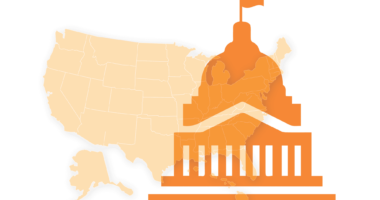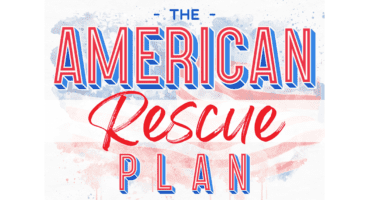The Education Trust’s Comments on the U.S. Department of Education’s Proposed Priorities for Mental Health Programs
Amy Banks
U.S. Department of Education
400 Maryland Avenue SW, Room 3E257
Washington DC, 20202
Earl Myers
U.S. Department of Education
400 Maryland Avenue SW, Room 3E244
Washington, DC 20202
Re: Proposed Priorities, Requirements, and Definitions-School-Based Mental Health Services Grant Program (Docket ID ED-2022-OESE-0080) and Mental Health Service Professional Demonstration Grant Program (Docket ID ED-2022-OESE-0094)
Dear Ms. Banks and Mr. Myers:
As a national nonprofit that works to close opportunity gaps that disproportionately affect students of color and students from low-income backgrounds, The Education Trust writes to share its recommendations regarding the notices of Proposed Priorities, Requirements, and Definitions from the U.S. Department of Education (“Department”) for both the School-Based Mental Health Services Grant program (Docket ID ED-2022-OESE-0080) and the Mental Health Service Professional Demonstration Grant program (Docket ID ED-2022-OESE-0094).
All students deserve to learn in a safe, healthy, and inclusive environment. Integral to that work is ensuring that schools are equipped with the resources and supports necessary to foster students’ social, emotional, and academic development, including access to critical mental health supports, such as school psychologists, counselors, social workers, and more. Both the School-Based Mental Health Services Grant program and the Mental Health Service Professional Demonstration Grant program play a key role in helping students access high-quality mental health services in schools. As you consider revising the proposed priorities, requirements, and definitions for both programs, we respectfully request that you ensure these programs prioritize the needs of underserved students, particularly students of color, students from low-income backgrounds, and students with disabilities.
Access to high-quality mental health services is critical to students’ long-term social, emotional, and academic well-being. Students in their formative years are not only learning the skills necessary to grow and succeed in the classroom, but they are also learning how to process and grapple with external factors in their lives that may be sources of trauma or stress. Access to mental health supports, including school counselors, psychologists, and social workers, can be essential in helping students navigate the complexities of adolescence, particularly underserved students who often experience a unique and challenging set of external social and economic factors.
Over the course of COVID-19 pandemic, we have witnessed firsthand the urgent need for additional supports for students. Whether it be the devastating impact of losing a loved one due to the coronavirus, or the various disruptions to routines, relationships, or the learning environment that have resulted from months-long quarantines, the pandemic has resulted in health challenges and increased stress, social isolation, and anxiety for students. Unfortunately, these challenges have only exacerbated existing disparities facing students, especially students of color, students from low-income backgrounds, and students with disabilities. It is more important than ever that we increase access to qualified school-based mental health services providers for students.
To address the challenges our nation’s mental health crisis poses to underserved students, both the School-Based Mental Health Services Grant program and Mental Health Service Professional Demonstration Grant program were established to increase access to and the quality of mental health services for high-need schools. To achieve this goal, both programs aim to address the myriad barriers facing schools and districts, including the shortage of qualified mental health services providers in schools, the lack of pedagogical practices that provide linguistically and culturally inclusive and identify-safe environments for students, the public stigmatization of mental health care, and the lack of diverse, community-based, and linguistically diverse mental health services providers.
Specifically, the School-Based Mental Health Services Grant Program proposes to address these challenges by, “increasing recruitment and retention-related incentives… promoting the respecialization and certification of existing mental health services providers to qualify them for work in LEAs with demonstrated need… [and increasing] the diversity, and cultural and linguistic competency, of school-based mental health services providers, including competency in providing identity-safe services.” As the Department works to improve and expand the program, we recommend the following additions and revisions.
While we appreciate the prioritization of LEAs with “demonstrated need,” we encourage the Department to emphasize throughout its proposed priorities, requirements, and definitions the importance of addressing the needs of underserved students specifically, including students of color, students from low-income backgrounds, and students with disabilities — many of whom face the greatest disparities in access to critical services that support their social, emotional, and academic well-being. For example, when describing the nature and magnitude of how the lack of school-based mental health services providers affects students in high-need schools, the Department should require applications to describe the impact for underserved students specifically, as well as require the use of at least one additional data set in addition to the ratios of school-based mental health services providers to students, such as LEA-level or school-level demographic data, school climate surveys, and descriptions of barriers to hiring and retaining staff. Additionally, applicants should, to the extent practicable and in keeping with student privacy requirements, not only disaggregate ratios of school-based mental health services to students by profession (e.g., school social workers, psychologists, and counselors), but also by student demographics to identify disparities based on race, gender, disability, and other identifiers. We believe such disaggregation will provide critical information about the disparities in access to certain professions for specific student subgroups.
To ensure the School-Based Mental Health Services Grant program meets the needs of underserved students, we also recommend other revisions. For example, with respect to the proposed definition for “LEA with demonstrated need,” we encourage the Department to also include school discipline data as a potential metric for determining an LEA that has a significant need for additional school-based mental health services providers. As has been well-documented, school discipline policies disproportionately affect underserved students, including students of color and students with disabilities, negatively affecting their social, emotional, and academic development. Finally, the Department should include an annual reporting requirement for grant recipients to help measure how disparities in access to mental health services were, or were not, reduced for students. This report should include disaggregated information by profession and for students served to better understand the impacts of the program, specifically regarding who received funding, who was served, and outcomes of the program.
Similar to the goals of the School-Based Mental Health Services Grant program, the Mental Health Service Professional Demonstration Grant program proposes to “increase the number of school-based mental health services providers, increase the number of providers from diverse backgrounds or from the communities they serve, and ensure that all providers are trained in inclusive practices, including supporting providers in ensuring access to services for children and youth who are English learners.” As the Department works to improve and expand the program, we recommend the following additions and revisions to the proposed priorities, requirements, and definitions.
We appreciate the Department’s commitment to ensuring the grant program recruits providers from diverse backgrounds and encourage the Department to require LEAs or SEAs to prioritize historically Black colleges and universities (HBCUs), minority-serving institutions (MSIs), and tribal colleges and universities (TCUs) when establishing partnerships with an eligible institution of higher education (IHE). Furthermore, the Department should explicitly state in its priorities, requirements, and definitions that funding will be prioritized to applications that identify partnerships with these institutions.
We applaud the Department’s requirement for applicants to describe the nature and magnitude of how the lack of school-based mental health services providers is affecting students in high-need schools, and would recommend additional details be required. For example, when describing the nature and magnitude of the problem, applicants should, to the extent practicable and in keeping with student privacy requirements, not only disaggregate ratios of school-based mental health services to students by profession (e.g., school social workers, psychologists, and counselors), but also by student demographics to identify disparities based on race, gender, disability, and other identifiers. We believe such disaggregation will provide key information about the disparities in access to certain professions for specific student subgroups. Additionally, the Department should require the use of at least one additional data set in addition to the ratios of school-based mental health services providers to students, such as LEA-level or school-level demographic data, school climate surveys, and descriptions of barriers to hiring and retaining.
We support the requirement for applicants to describe the specific process and activities they will use to identify students for mental health services. Given the increasing attention to behavioral threat assessment models nationwide, however, we encourage the Department to provide additional guidance. These models are often used to identify “threats” to schools, and while the theory behind the creation of these models is to ensure students have access to supports, in practice, they are often used to exclude and psychologically harm students. To ensure the identification process does not result in such harmful implementation, the Department should ensure that mental health professionals, including school social workers, psychologists, and counselors, are the individuals conducting the identification process, rather than school resource officers and other school security staff. Furthermore, the Department should require applicants to describe how the process ensures identified students are not excluded from schools and classrooms, and what recourse students and families have available to them if they disagree with the identification. Additionally, we support the requirement for applicants to describe how they will ensure services are evidence-based and inclusive regarding race, ethnicity, culture, language, disability, and students who identify as LGBTQI+, and would recommend adding homelessness to this list.
We also recommend revisions to several definitions. Regarding the definition of an “eligible institution of higher education,” we recommend the definition be limited to HEA Section 101 institutions. We also recommend specifying in the definition for “high-need LEA” that there is a high student-to-qualified-mental-health-services-provider ratio, particularly for underserved students. Finally, in the definition for “school-based mental health partnership,” we recommend specifying that eligible IHEs include HBCUs, MSIs, and TCUs.
Finally, we note that there is currently no reporting requirement for the impact of the program on addressing disparities and recommend including a requirement for an annual report on how disparities were, or were not, reduced. This report should include disaggregated information for professions and for students served to better understand the impacts of the program, specifically regarding who received funding, who was served, and outcomes of the program.
As you work to strengthen both the School-Based Mental Health Services Grant program and the Mental Health Service Professional Demonstration Grant program, we encourage you to ensure that all students can learn in a safe, healthy, and inclusive environment. Access to critical mental health supports in schools, such as school psychologists, school counselors, social workers, is key to fostering students’ social, emotional, and academic development. As you consider revising the proposed priorities, requirements, and definitions for both programs, we respectfully urge you to ensure these programs prioritize the needs of underserved students, particularly students of color, students from low-income backgrounds, and students with disabilities.
Thank you for your consideration, and for your continued commitment to the well-being of our nation’s students. Should you have any questions or concerns, please do not hesitate to reach out to Blair Wriston (Bwriston@edtrust.org), senior government affairs associate at The Education Trust.
Sincerely,
The Education Trust



